I'm learning how to use the tool perf to profile my c++ project. Here is my code:
#include <iostream>
#include <thread>
#include <mutex>
#include <vector>
std::mutex mtx;
long long_val = 0;
void do_something(long &val)
{
std::unique_lock<std::mutex> lck(mtx);
for(int j=0; j<1000; ++j)
val++;
}
void thread_func()
{
for(int i=0; i<1000000L; ++i)
{
do_something(long_val);
}
}
int main(int argc, char* argv[])
{
std::vector<std::unique_ptr<std::thread>> threads;
for(int i=0; i<100; ++i)
{
threads.push_back(std::move(std::unique_ptr<std::thread>(new std::thread(thread_func))));
}
for(int i=0; i<100; ++i)
{
threads[i]->join();
}
threads.clear();
std::cout << long_val << std::endl;
return 0;
}
To compile it, I run g++ -std=c++11 main.cpp -lpthread -g and then I get the executable file named a.out.
Then I run perf record --call-graph dwarf -- ./a.out and wait for 10 seconds, then I press Ctrl+c to interrupt the ./a.out because it needs too much time to execute.
Lastly, I run perf report -g graph --no-children and here is the output:
My goal is to find which part of the code is the heaviest. So it seems that this output could tell me do_something is the heaviest part(46.25%). But when I enter into do_something, I can not understand what it is: std::_Bind_simple, std::thread::_Impl etc.
So how to get more useful information from the output of perf report? Or we can't get more except the fact that do_something is the heaviest?

